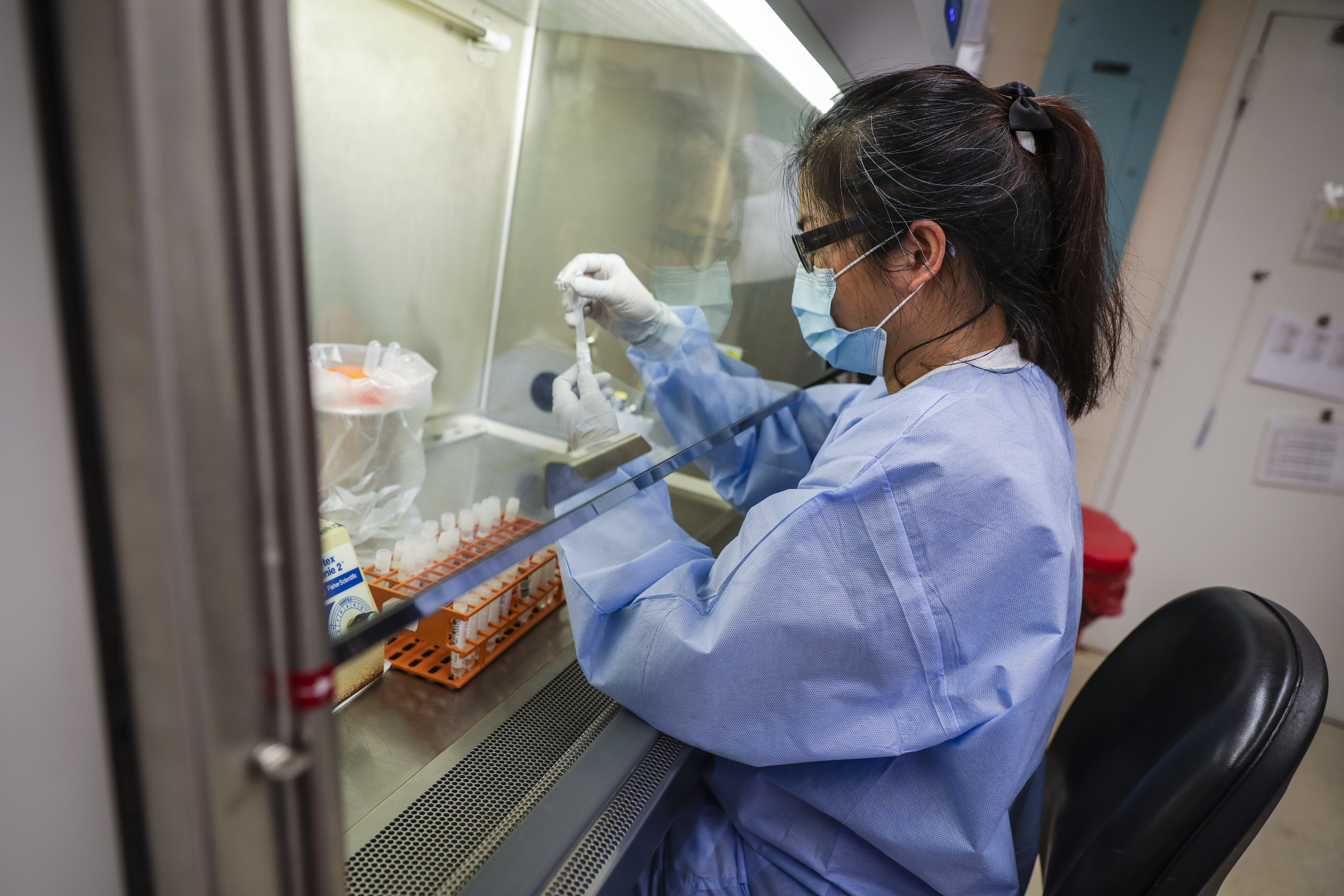
[ad_1]
MINNEAPOLIS (WCCO / AP) – The variant of COVID-19 Brazil P.1 is in Minnesota – the first confirmed case in the United States.
The Minnesota Department of Health (MDH) said the variant was detected in a resident of Twin Cities who had recently traveled to the South American country. Officials say the variant spreads faster, but it is not known whether it is more serious or more deadly.
Viruses are constantly changing, and new versions – called variants – often emerge. Health officials are also concerned about the variants first reported in the UK and South Africa. Researchers believe they could spread more easily than the virus that “has already sickened millions of people in the United States and caused nearly 420,000 deaths.”
The Brazilian variant was first identified in four travelers who were tested at an airport outside of Tokyo, Japan. It contains a set of mutations that can affect its ability to be recognized by antibodies, according to the United States Centers for Disease Control and Prevention.
MDH has a program that performs regular monitoring of variants, testing 50 random samples from the University of Minnesota labs each week. State Health Commissioner Jan Malcolm said the new discovery underscores the importance of testing as well as continued efforts to limit the spread of the disease.
“We know that even as we work hard to defeat COVID-19, the virus continues to evolve like all viruses,” Malcolm said in a statement. “This is yet another reason why we want to limit the transmission of COVID-19 – the fewer people who contract COVID-19, the less opportunity the virus has to evolve. The good news is that we can slow the spread of this and all variants of COVID-19 by using the proven prevention methods of wearing masks, keeping social distance, staying home when sick. and to be tested if necessary.
Some researchers are concerned that people already infected with COVID-19 may be re-infected with the Brazilian variant.
If that were to be confirmed, “that would be disturbing,” said Dr William Schaffner, an infectious disease specialist at Vanderbilt University.
The CDC has reported at least 195 cases of the British variant in the United States. These reports come from at least 22 states, including eight from Minnesota. The South African variant has not been discovered in the United States. Last week, the World Health Organization called for an increased effort to detect new variants.
President Joe Biden reinstated COVID-19 travel restrictions on Monday for most non-U.S. Travelers from Brazil, the UK and South Africa. Experts had predicted that it was only a matter of time before the Brazilian and South African variants appeared in the United States.
It makes sense that it would be spotted for the first time in Minnesota, which has greater lab capacity than available in other states, Schaffner said. That means it may already be present elsewhere in the United States, but it just hasn’t been identified yet, he said.
The CDC said the UK variant could become dominant in the United States by March. While it won’t cause more serious illness, it will lead to more hospitalizations and deaths just because it spreads much more easily, the CDC said, warning of “a new phase of exponential growth.”
Scientists last week reported preliminary but worrying signs that some recent mutations could moderate the effectiveness of two current vaccines, although they pointed out that the vaccines still protect against the disease. And there are signs that some of the new mutations could interfere with tests for the virus and reduce the effectiveness of some treatments. Some tests suggest that the South African and Brazilian variants may be less sensitive to antibody drugs or the antibody-rich blood of COVID-19 survivors, which help people fight the virus.
Health officials are also concerned that if the virus changes enough, people could contract COVID-19 a second time. Reinfection is rare, but Brazil has confirmed a case in a person with the new variant who had been sickened by a previous version several months earlier.
(© Copyright 2021 CBS Broadcasting Inc. All rights reserved. The Associated Press contributed to this report.)
[ad_2]
Source link